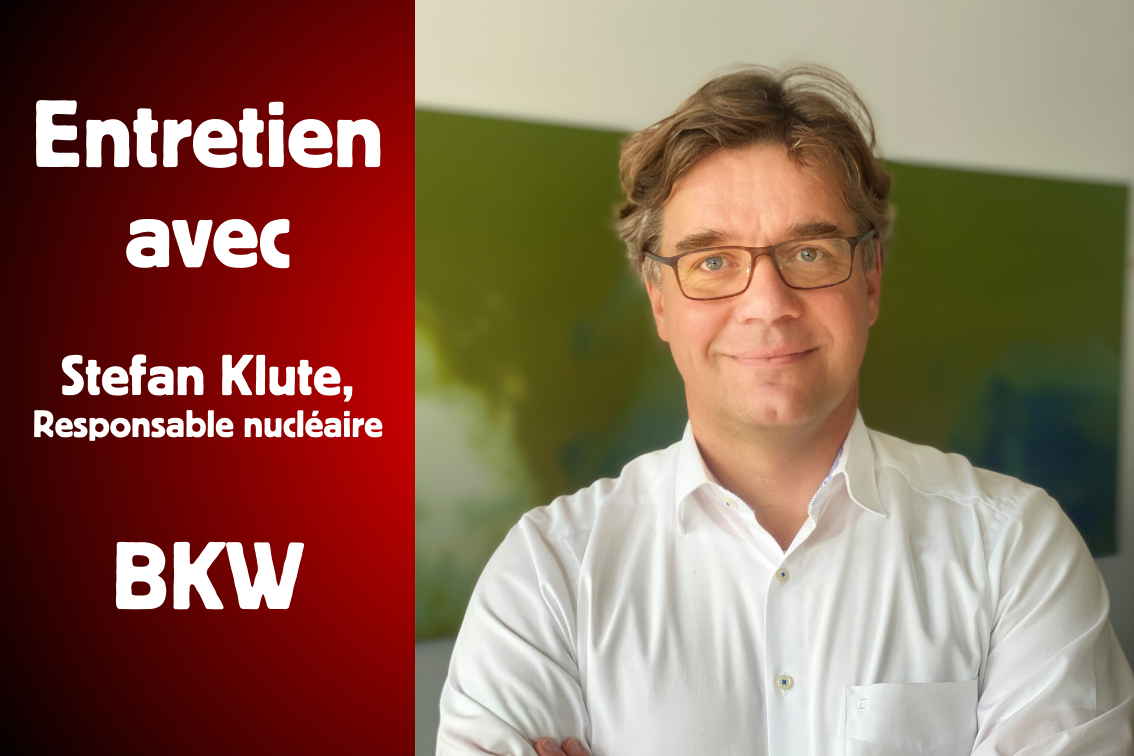On 20 December 2024, in response to the popular initiative “Electricity for everyone at all times (Stop the blackout)”, the Federal Council unveiled its own counter-proposal. Under consultation until April 3, the text proposes to amend the Nuclear Energy Act in order to allow new power plants to be approved again in Switzerland.
“The aim is to promote openness to different technologies in Switzerland’s energy policy, including nuclear energy, and thus to create an insurance regarding electricity supply in case renewable energies could not be developed to the desired extent, where there is not enough progress in seasonal electricity storage and where there are no other climate-friendly solutions to guarantee electricity production,” it says on the Confederation’s website.
Since the beginning of the year, reactions have been numerous and often opposed. During the month of March, the aim is to take stock of the different opinions and to determine what actors in the sector think. We thus begin a series of interviews with Stefan Klute, head of nuclear at BKW. Interview
What is your position and opinion on the idea of reviving the nuclear sector in Switzerland?
We are committed to a secure and climate-friendly electricity supply. To this end, we have always advocated technological openness and we continue to do so. That is why we welcome the Federal Council’s counter-proposal to the federal popular initiative “Electricity for everyone at all times (Stop the blackout)”.
Independent of the debate on lifting the ban on the construction of new nuclear power plants, the development of renewable energies—particularly to strengthen electricity supply in winter—must now be urgently accelerated. That is why we also supported the Electricity Act and we are focusing, in the years to come, on several renewable energy projects that will make a significant contribution to Switzerland’s security of supply.
With regard to security of supply and grid stability in the decades to come, it is also essential, in my view, to give deep thought to the long-term operation of the Leibstadt and Gösgen nuclear power plants, and to take the appropriate decisions in due time.
If this door is reopened in Switzerland, what type of nuclear energy should be relied on: new large reactors or small modular reactors of the SMR or AMR type?
BKW currently has no project to build a new nuclear power plant, but we are closely following the development of all relevant technologies.
One of the main issues concerning future plants is their profitability. It is not currently guaranteed in Switzerland. Next-generation plants are, moreover, only being built in countries where the state directly manages the project or grants them significant public support. It would take years, even decades, before new nuclear power plants could be operated economically viably in Switzerland.
Moreover, the construction and profitable operation of a new nuclear power plant would require stable political and regulatory conditions as well as a broad, durable societal consensus over several decades.
The necessary skills and experts remain available in Switzerland as long as the two large nuclear power plants Leibstadt and Gösgen are in operation.
In Switzerland, are there the technical capacities and a sufficient number of experts to have new ambitions in nuclear power within reasonable timeframes?
If society wishes, in the future, to meet its climate objectives, guarantee security of supply and give top priority to preserving the landscape, new nuclear power plants could be part of the solution. They have the capacity to produce large quantities of low‑CO₂ energy on a small footprint.
The necessary skills and experts remain available in Switzerland as long as the two large nuclear power plants Leibstadt and Gösgen are in operation. By contrast, restarting the nuclear industry after the shutdown of these facilities would seem a much more ambitious challenge to me.
If nuclear power is revived, shouldn’t one fear a reduction in investment in other renewable energy sources?
No. This will not prevent us from continuing our efforts to implement the projects already planned for electricity production from renewable energies. These notably include the Montagne de Tramelan wind farm in the Bernese Jura, the largest ground-mounted solar plant in Switzerland (BelpmoosSolar), several alpine solar installations, as well as hydroelectric projects such as Trift and the enlargement of the Grimsel reservoir.
With our Solutions 2030 strategy, we will invest around 2.5 billion francs over the next six years in the development of renewable energy production, in Switzerland and abroad. The construction of new nuclear power plants in Switzerland will not take place in the short or medium term, as it requires specific technical, economic, political and regulatory conditions which, in my view, will not be met before 2040.
Finally, Switzerland has participated in and invested for many years in the European research program on nuclear fusion… An unattainable myth or a future path in which one should continue to believe and invest?
We have not invested in nuclear fusion research programs. However, we are following technological advances in this field closely.
This article has been automatically translated using AI. If you notice any errors, please don't hesitate to contact us.




